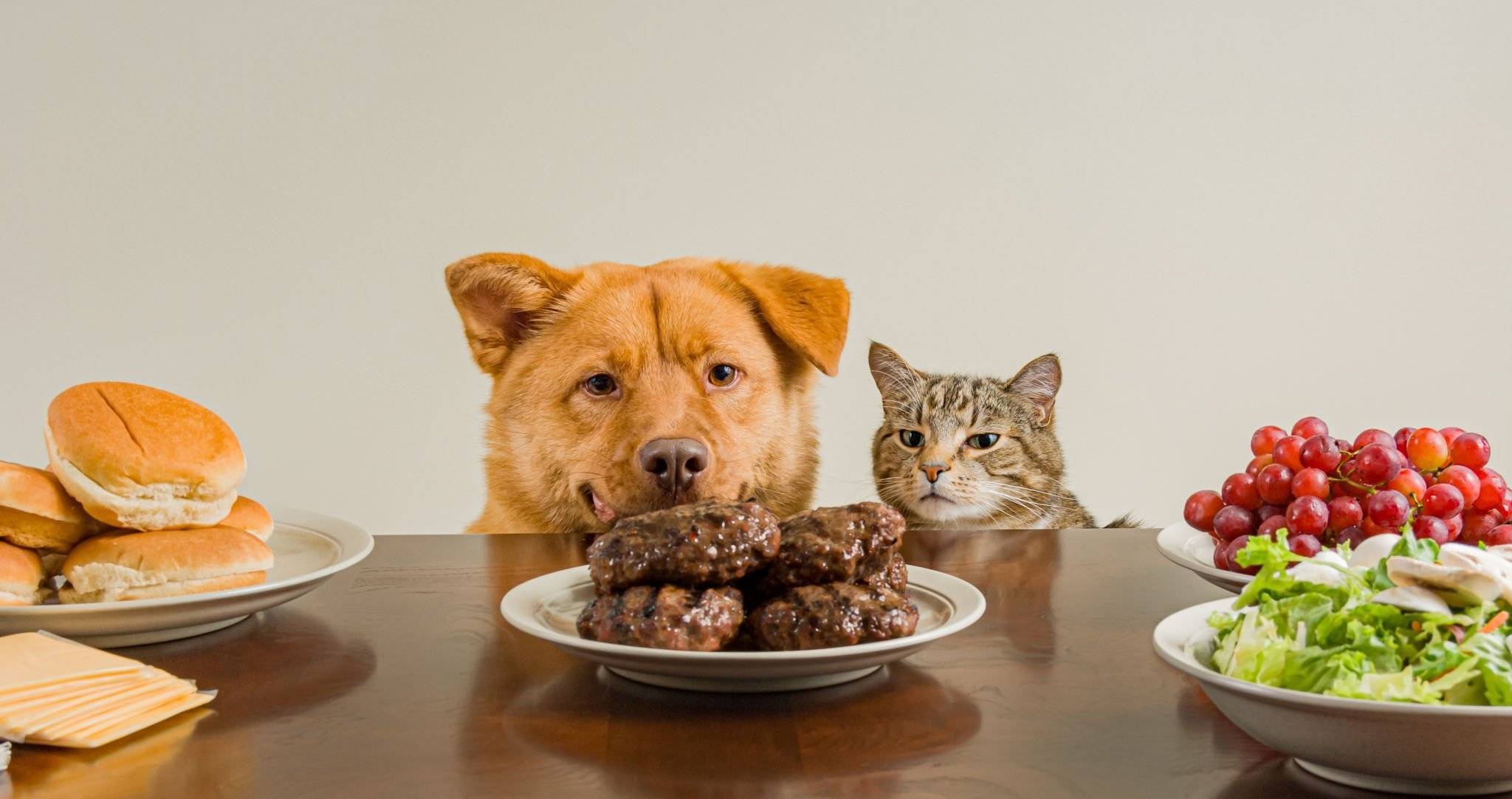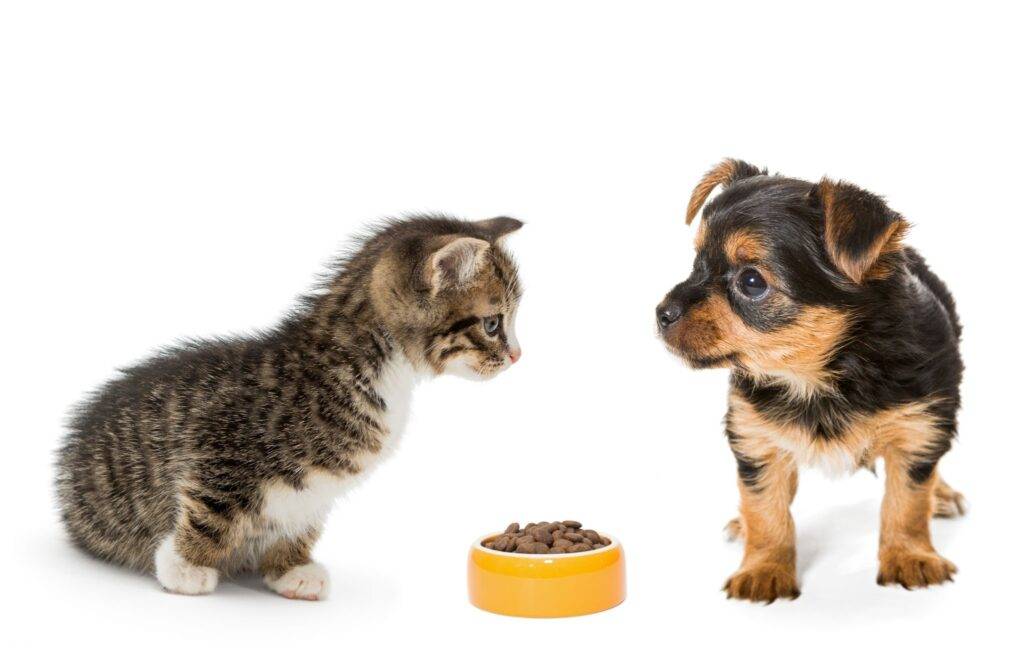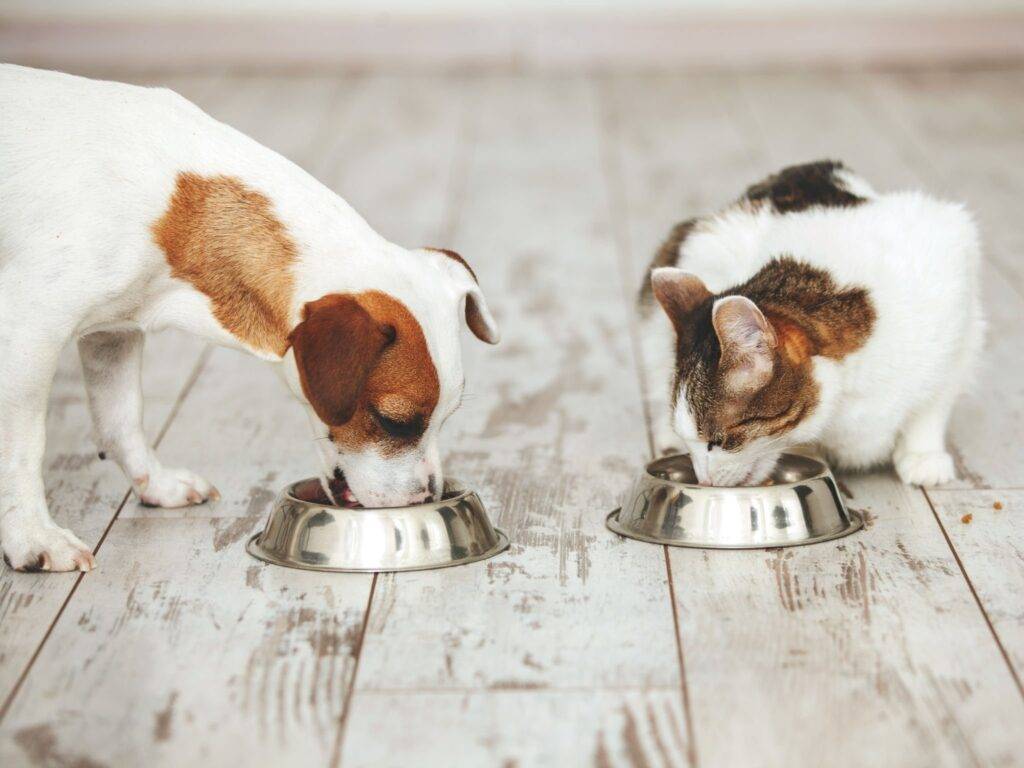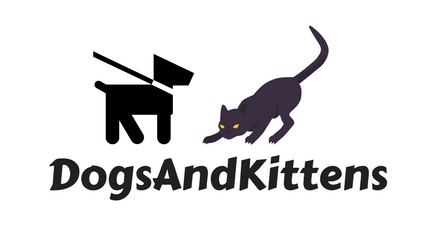
Hey there, curious kitties! Let’s sharpen our claws and dive into the topic of cats eating dog food. We all know how tempting it can be to sneak a taste of our canine companions’ meals. But here’s the scoop: dog food may not be the purrfect choice for us cats. Our discerning palates and nutritional requirements are distinct from those of our loyal doggie pals.
So, let’s unravel the differences and discover why it’s important to stick to our own feline fare. Stay tuned for some whisker-licking insights!
What’s the Difference Between Cat Food and Dog Food?

Cats and dogs may be furry companions, but when it comes to their dietary needs, there are significant differences between them. Cat food and dog food are tailored to meet the specific nutritional requirements of each species. So, what sets them apart? Let’s take a closer look, starting with the question:
What is a cat food made of?
Cat food is carefully crafted to cater to the unique dietary needs of our beloved feline friends. Cats are obligate carnivores, meaning they rely on meat as the primary source of their nutrition. Unlike dogs, who can thrive on a more varied diet that includes grains and vegetables, cats require a diet rich in animal protein to ensure their well-being.
High-quality cat food will always include animal meat as a prominent ingredient. This is because cats need essential amino acids, such as taurine and arginine, which are vital for their overall health. Taurine, for instance, is crucial in maintaining a healthy heart and preventing dilative cardiomyopathy, a dangerous condition for cats. It is naturally present in raw meats, making it an essential component of cat food.
Furthermore, cat food provides a higher protein content than dog food, as cats have a faster metabolism that breaks down amino acids more rapidly. They require a minimum of 26 percent protein in their daily meals to support their energetic and active nature.
In addition to the specific amino acids, cat food also incorporates essential fatty acids like arachidonic acid. This fatty acid supports a cat’s skin health, gastrointestinal function, and blood clotting. Since cats cannot produce arachidonic acid on their own, it must be included in their diet through specialized cat food.
Apart from proteins and fatty acids, cat food is carefully formulated to provide the necessary vitamins, including vitamin B (niacin) and vitamin A, essential for a cat’s overall well-being. These vitamins are not present in sufficient quantities in dog food, as dogs have the ability to convert other substances into these vital nutrients.
What food is poisonous to cats?
When it comes to the well-being of our beloved feline friends, it is crucial to be aware of the foods that can pose a threat to their health.
- Onions, Garlic, Shallots, and Scallions: These can damage a cat’s red blood cells and cause anemia.
- Raw Eggs, Raw Meat & Bones: Consumption can lead to salmonella or E. coli poisoning and pose a choking hazard.
- Chocolate and Caffeinated Drinks: Contain methylxanthines, which can cause various symptoms and should be avoided.
- Alcohol and Raw Dough: Ingestion can result in severe symptoms such as vomiting, diarrhea, tremors, and even coma.
- Milk and Dairy Products: Cats have difficulty digesting lactose, leading to upset stomach or diarrhea.
- Grapes and Raisins: Even a small amount can cause kidney failure and other serious health issues.
- Dog Food: While not toxic, cat food contains essential nutrients that dog food lacks, and cats need a specific diet to thrive.
It’s important to prioritize the health and safety of our feline companions by avoiding these potentially harmful foods and providing them with a well-balanced, species-specific diet.
Is It Safe for a Cat to Eat Dog Food?
While occasional nibbles of dog food may not cause immediate harm, it is not recommended for cats to regularly consume dog food. The nutritional needs of cats differ significantly from those of dogs, and dog food may not provide the essential nutrients that cats require for optimal health.
When Dog Food Is Safe for Cats
In certain situations, such as emergencies or temporary unavailability of cat food, a small amount of dog food can be temporarily substituted for cat food. However, this should only be a short-term solution, and efforts should be made to provide proper cat food as soon as possible. It is essential to consult a veterinarian for guidance on appropriate alternatives and ensure that the nutritional needs of your feline companion are met.
When Dog Food Is Harmful to Cats
Consistently feeding a cat with dog food can lead to significant health problems. Dog food lacks essential nutrients that are specifically formulated to meet the unique dietary requirements of cats. Prolonged consumption of dog food by cats may result in nutritional deficiencies, such as inadequate levels of taurine, arachidonic acid, niacin, and vitamin A, which are crucial for a cat’s overall well-being. Therefore, it is crucial to prioritize a cat’s dietary needs by providing them with cat-specific food to maintain their long-term health and vitality.
How long can a cat eat dog food?
Feeding a cat exclusively with dog food for an extended period is not recommended. It is best to transition your cat back to proper cat food within a few days to a week to ensure they receive the necessary nutrients and maintain their long-term health.
What can you feed a cat when you run out of food?
When you run out of cat food, there are various safe alternatives you can provide for your feline companion:
Vegetables:
- Broccoli
- Carrots
- Green beans
- Peas
- Pumpkin
- Spinach
- Squash
Fruits:
- Sliced strawberries
- Blueberries
- Bananas (in small portions)
Other Types of Food:
- Boiled plain rice
- Cooked egg whites or scrambled eggs
- Cooked barley or oats
- Cooked chicken (skinless and boneless)
- Un-spiced deli slices or chunks
- Tinned tuna
- Whitefish (like cod)
- Salmon (in moderation)
Keep in mind that while some cats may enjoy fruits, others may not be interested. Always introduce new foods gradually and in moderation.
How to Train Your Cat to Stop Eating Dog Food

To train your cat to stop eating dog food, there are several effective strategies you can employ:
- Feed Them Simultaneously: Serve meals to your cat and dog at the same time but in separate areas. This helps create a routine and prevents your cat from being tempted by the dog’s food.
- Set Up a “Food Gate”: Use a gate or barrier to separate the feeding areas. This allows your dog to access their food while keeping your cat away from it.
- Use an Automatic Feeder: Consider using an automatic feeder that is programmed to dispense meals at specific times. This ensures that each pet receives its designated food without the risk of the cat accessing the dog’s food.
- Separate Your Pets During Meal Times: If your cat and dog tend to finish their meals quickly, it’s best to separate them into different rooms during feeding times. This eliminates the opportunity for your cat to steal or consume the dog’s food.
- Make a Cat Meal Box: Create a designated feeding station for your cat by using a box with a small entrance that only your cat can access. This allows your cat to eat in peace without interference from the dog.
Remember, consistency and patience are key when training your cat. It may take time for them to adjust to the new feeding routine, but with proper training and management, you can help your cat develop the habit of avoiding dog food.
Final Thoughts: Feline and Canine Nutrition: Tailored for Health
It is essential to acknowledge the distinct nutritional needs of cats and dogs. Feeding cats dog food on a long-term basis can lead to nutritional deficiencies and potential health issues. To ensure their well-being, it is crucial to provide cats with high-quality cat food designed specifically for their unique dietary requirements. By understanding and addressing these differences, we can promote the health and longevity of our feline and canine companions.
If you’re curious about the reverse scenario and wondering whether dogs can eat cat food, you can explore our article on ‘Can Dogs Eat Cats Food?‘ for more insights into the topic. Remember, providing the right nutrition for our pets is key to keeping them happy and healthy. Let’s prioritize their well-being and offer them the whisker-licking goodness they deserve.

[…] reverse scenario and wondering whether cats can eat dog food, you can explore our article on ‘Can Cats Eat Dogs Food?‘ for more insights into the topic. Remember, providing the right nutrition for our pets is […]
[…] und sich fragen, ob Katzen Hundefutter essen können, finden Sie in unserem Artikel Können Katzen Hundefutter essen? Denken Sie daran, dass die richtige Ernährung für unsere Haustiere der Schlüssel zu […]